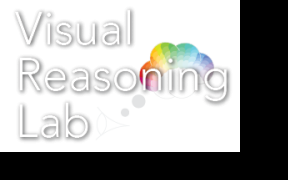The UW Virtual Brain Project™ is making education more engaging through virtual reality (VR). The immersive learning environments spark excitement, and improve student’s understanding of how the brain works.
To experience the potential of VR-based learning, we have developed five lesson plans within the UW Virtual Brain Project™: The UW Virtual Brain Visual System™, The UW Virtual Brain Auditory System™, The UW Virtual Brain Touch System™, The UW Virtual Brain Olfactory System™, and The UW Virtual Brain Gustatory System™. The lesson plans immerse people in a model of the brain based on real brain scans, allowing them to follow the path from sensory input to cortex. Information stations along the way describe key topics at each stage of neural processing.
Our perspective on VR education is that VR is a lens, analogous to a microscope or telescope, through which students experience content that would otherwise be difficult to see. We believe that the future of VR in the classroom is to provide enriched experiences that are integrated within the larger course structure, rather than supplant traditional education. Just as students do not spend entire classes with microscopes or telescopes attached to their face, they also need not to spend entire classes wearing VR headsets. VR acts as a springboard to facilitate class discussion and activities, rather than isolate students from each other and the instructor. Thus, the UW Virtual Brain Project™ lessons are brief (about 5 min.) and can be built into regular lessons on neural structure and function.
In the lab. The UW Virtual Brain Project™ team is conducting research to demonstrate the efficacy of VR-based education and to identify the aspects of VR that are especially beneficial to learning outcomes.
UW Virtual Brain Project™ team: Karen Schloss • Bas Rokers • Chris Racey • Simon Smith • Ross Tredinnick • Nathaniel Miller • Melissa Schoenlein • Chris Castro
